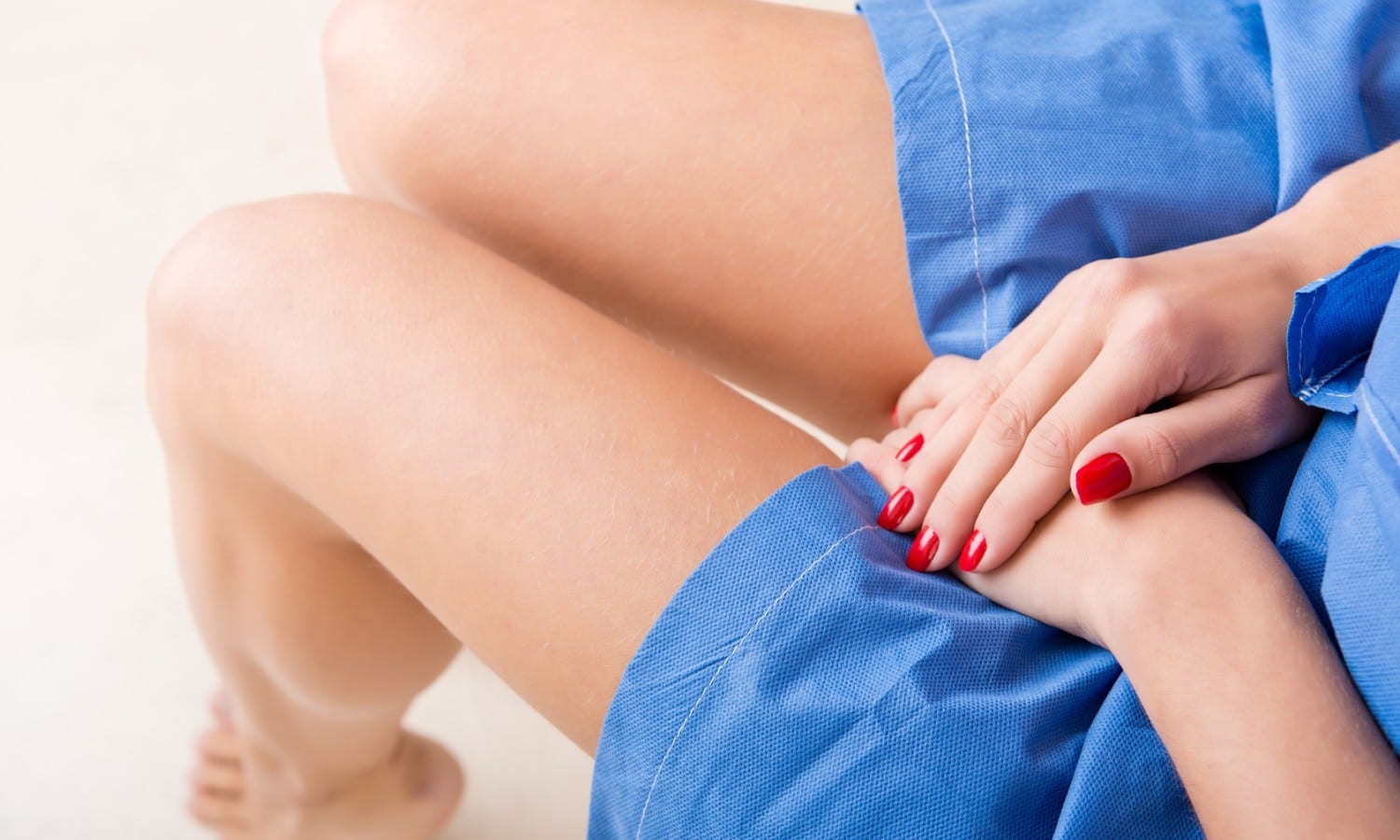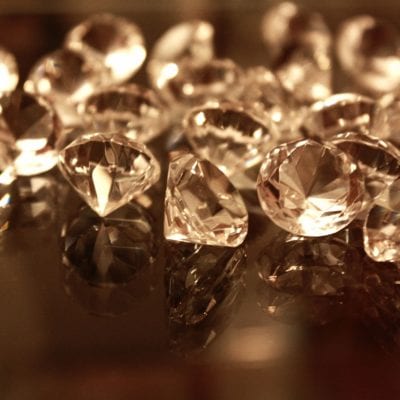The Common Condition No One Talks About!
PCOS, or Polycystic Ovary Syndrome, is a condition that far too many women suffer from, but far too little talk about. When I was just out of my teenage years, I was finally enlightened to the condition by my doctor after years of suffering and never knowing why.
Today, I sit here looking at my two daughters and realise that I am one of the lucky few who have managed to ‘manage’ PCOS and lead a normal healthy life. To look at me, you would never know I suffer. To watch me during my day to day life you would never understand the fear that I go through each and every month. The pain I have had to deal with or the heartache it has caused.
Many people talk about the ‘silent conditions’. PCOS is one of them.
So – a little of the facts before I talk about my own personal experience. Those who suffer rarely talk about it and even fewer would understand if they did.
A few facts:
- Somewhere between 1/10 and 1/20 women suffer from PCOS (with so many undiagnosed it can be hard to pin down a definitive number) – with as many as 5 million women in the USA alone being affected
- PCOS can develop in those as young as 11 years old
- Over 70% have never been properly diagnosed
- More than 50% of women with PCOS will develop diabetes before the age of 40
- PCOS is one of the highest causes of female infertility
Symptoms of PCOS include:
- Infertility due to not ovulating.
- Infrequent, absent, and/or irregular menstrual periods.
- Increased hair growth (Hirsutism) on the face, chest, stomach, back, thumbs, or toes.
- Cysts on the ovaries.
- Acne, oily skin, or dandruff
- Weight gain or obesity.
- Pelvic pain.
- Anxiety or depression.

So how did I know something was wrong?
For years, since the very day I started my periods, I knew something was not right. I was taught over and over again to ‘track my periods’. Every month many of my friends would know down to the hour when they were ‘due on’. Me, I never knew when it – Aunty Flo – would visit. I was caught unaware each and every time. I could go six or eight weeks without anything at all and then all of a sudden find myself in incredible excruciating pain and bleeding for two to three weeks at a time. My mum (and the doctor) would tell me it was just my body adjusting and settling into it’s own rhythm. That it was normal for my periods not to be regular. It was normal to have cramps and for it to feel painful – I wasn’t used to this and some day soon it would all settle down. Only it didn’t.
They weren’t wrong and I don’t blame the doctor for not looking at things differently, many teenagers’ bodies take a while to adjust – so no one would think anything different.
Years went by and I never said a thing. I was embarrassed about my body and was far too much of a prude to talk about it with anyone. So for years I just let it go. I adapted. I never ever left the house without tampons – ever! And I would think twice about wearing that floaty white summer dress or light coloured trousers. Blue jeans and black trousers were my staple.
I was a late bloomer, and didn’t loose my virginity until I was much older than most. So the idea that my periods were irregular was not a worry. Until that was, I had my first sexual partner. Then things just got sticky. I would panic every month that I might be pregnant. I took more than my fair share of tests and even though the negative answer would bring relief, still nothing would come. I didn’t want to admit to myself something was wrong so I put off going to the doctor for far too long.
When I eventually sucked up the courage to go and get ‘the pill’, I had to admit to the doctor that I had no idea when my last period was, or how long my normal cycle was.

How was I diagnosed?
The doctor’s face said it all that day. She asked if she could do a few simple tests, just to check if everything was OK, but had a suspicion that I may be suffering from PCOS. She did a pelvic exam, an ultra sound and took some blood tests. The results – I had what he described was a ‘pearl necklace’ around my ovaries. A cluster of cysts. This explained the frequent pain and the irregular periods.
She also went on to quiz me about other aspects of my life. Suddenly the excess hair that seemed to plague my life was explained, as was the acne that I simply couldn’t seem to shift no matter what creams I tried or beauty regimes I stuck to, and now I had also an explanation for the horrendous migraines that accompanied the heavy three monthly periods.
I was lucky
Although the diagnosis was a shock, I was one of the luck ones. Just like all medical conditions, there is a spectrum of sufferers. Some people suffer much more than others and have to deal with massive weight gain, obesity and chronic infertility.
I did not suffer with weight gain – but over the years I would struggle with my fears of infertility.
I suffered (and still suffer) with excess hair. I envy those who only have to shave once every three weeks. I can shave in the morning and by the evening I am prickly again.
When I fell pregnant with my first daughter, the doctor was amazed. “You must have found your miracle maker. You are incredibly lucky”. My miracle man gave me my miracle baby. The pregnancy was fraught with issues, hyperemesis, false labour, irritable uterus. My doctor had warned me this could happen, but I was lucky to get through my first trimester with my daughter without miscarriage. So many are not so fortunate.
The best bit? Pregnancy regulates the hormones. So during the pregnancy and the year after the birth, my hormones regulated and my issues subsided. They would of course return once my body was ‘back to normal’ but I was glad of the relief.
After my first daughter, the doctor was clear – “You can try for another, or you can have your tubes tied. But the pill does not suit you. And be aware, that trying for a second is a risk. However, while your hormones are normalised, falling pregnant may be easier now and you may not have the chance again.”
I was determined that my miracle man had helped produce the most perfect first daughter, and I had not only carried her to term, she was two weeks late. Surely I would be fine.
My second pregnancy was not so easy. We fell pregnant fairly quickly but the hyperemisis came back with a vengeance. Other issues arose and my gorgeous second daughter was born premature and with a few issues.
Not all pregnancies are easy, but for those who have struggled with PCOS, if we are fortunate enough to fall pregnant in the first place, we worry the entire length of the pregnancy.

After my second child, I opened up a little more about PCOS and talked more to friends about it. I was stunned at just how many people suffered. Celebrities have started opening up about their own struggles.
Jools Oliver has been vocal about her struggles and is now a blissfully happy mother of 4 with number 5 on the way.
Victoria Beckham also suffers, although she has kept reasonably quiet about her struggles. Mostly because the press focus on her svelte figure. Most PCOS sufferers struggle with weight issues and it is clear Victoria does not have a weight problem. However, if you look back at pictures of her over the years, she is not a naturally slim person. She has worked at keeping a small frame. For women with PCOS, weight can be a constant struggle.
Other celerities who have suffered include Harry Judd’s wife who turned to IVF to help conceive. This is a route so many have to consider.
There is not a day that goes by when I don’t glance at my children and know just how lucky I am to have them.
There is no cure for PCOS, but it is a manageable condition. With my daughters now no longer toddlers, my hormones have settled down again, and I struggle every month. I panic every time I am late and some months the pain and bleeding can be unbearable.
It is a condition that is not talked about enough. It is NOT uncommon, but too many young teenagers suffer for far too long before seeking advice and help.
If you think you fit some of these symptoms, please go and get checked. It is manageable. Don’t suffer in silence alone.








